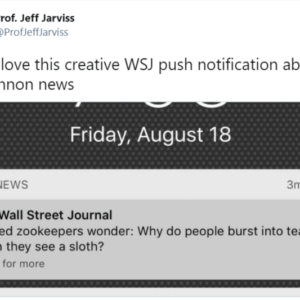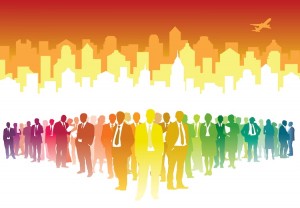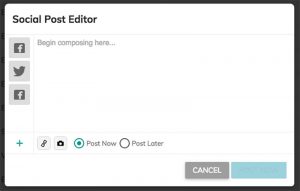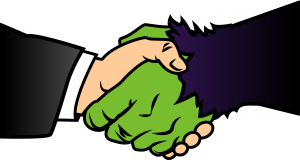When the best choice might not be between two things
By whitewashing the lesser of two evils, we condition ourselves to indulge in the black-and-white thinking that discourages creativity.
Type “biggest monopolies today” into your Google search bar and click.?What can you expect to find near the top of the list?
You guessed it:?Google. Like Standard Oil and AT&T before government antitrust laws broke them up in 1911 and 1984 respectively, the online search engine utterly dominates its industry—so much so that its name has become the verb for online searching.
Whether Google meets a similar fate remains to be seen as antitrust suits wind their way through the system. Amazon, Facebook, Live Nation Entertainment, and other megaliths could also end up on the chopping block.
But is it necessarily different when there are two dominant players?
Consider Coke and Pepsi, Visa and Mastercard, Apple and Samsung, Airbus and Boeing.? Are these giants really in competition with one another, or are they simply going through the motions in a kind of symbiotic dance while blocking third-party competitors from getting a significant piece of the action?
And, speaking of third parties: What about the Republicans and the Democrats?? Together, don’t they have a death grip on the political process so firm that outsiders and independents have almost no hope of mounting a serious challenge?? Given the titanic unpopularity of nominees heading both tickets over the most recent election cycles, it’s arguable that the entrenched leadership among donkeys and elephants is less interested in winning particular elections than in preserving influence over their respective power bases.
So what do you call it when not one but two entities claim an unfair advantage by excluding all contenders??Not a monopoly, but this week’s addition to the Ethical Lexicon:
Duopoly (du·op·o·ly/ doo-op-uh-lee) noun
A situation in which a commodity or service is controlled by only two producers or suppliers
In a recent episode of Freakonomics Radio, host Stephen Dubner gathered thinkers and scholars to outline how the illusion of competition actually advances the consolidation of power and dominance.? By relentlessly vilifying the opposition, each candidate fuels tribalization by inflaming fanatical and passionate loyalty among their respective bases.
What’s more, their flagrant exaggerations and disregard for facts exploit news outlets, which provide free advertising by dutifully carrying stories of conflict and contention. In the end, most of us default to one party or the other, no matter how dissatisfied we are with our choice.
It’s not much different in business. As much as we make a show of celebrating “disrupters,” the truth is we only like them when they’re disrupting someone else.
Let’s be honest: Don’t we all feel the magnetic, emotional pull of brand names—even when we have to pay a premium? Aren’t we wary of experimenting with new, untested products and services? Better to let others take the risk and then jump on board if all goes well.

But how is that any different from our unwillingness to vote for third-party candidates?? We complain about the system, but most of the time we’re complicit in perpetuating it.
Herein lies the insidious danger of duopoly: It lulls us into the comforting fantasy that we are exercising free choice, when in fact we’re locked into a deceptive dichotomy between distinctions without any difference.
Even worse, by whitewashing the lesser of two evils, we condition ourselves to indulge in the black-and-white thinking that discourages creativity. In the end, we blind ourselves from recognizing the ethical perspective that seeks new and more advantageous options beyond the binary status quo.
In his entertaining TED Talk, “Why we make bad decisions,” Harvard psychology professor Dan Gilbert offers the following illustration:
You see a $2,000 Hawaiian vacation package advertised on sale for $1,600. You’re thinking of going to Hawaii, so you eagerly buy it. But if you had seen the same package on sale for $700 and now the price has gone up to $1,500, you most probably would not buy it.
“In other words,” Gilbert explains, “a good deal that used to be a great deal is not nearly as attractive as an awful deal that was once a horrible deal.”
The natural laziness of our brains inclines us to indulge in false comparisons rather than accurately and objectively assessing objective value. If we find option A detestable, our subconscious minds quickly embrace any available excuse to make option B look more appealing, even if it is barely a smidgen less malignant than option A.
Sometimes, there really are only two options, in which case we might have to hold our nose and indeed pick the lesser of two evils. But that’s entirely different from deluding ourselves into believing that an awful choice is not so bad because it’s less awful than the obvious alternative. By recognizing that false binary and rejecting the duopoly of our thinking, we open ourselves to the possibility of a better third way that might not be awful at all.
ABOUT THE AUTHOR
(7)
Report Post







